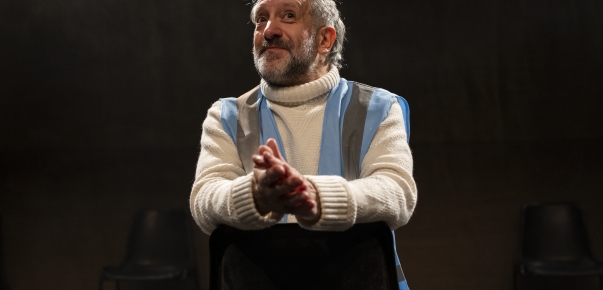Archives and Inspiration
5 Jun 2024
You may have heard about our current production, A Child Of Science, the incredible story of the scientific research and experiments that led to the birth of the first ever “Test Tube Baby”. But did you know that the Brown family, who first successfully had a child through IVF, were from Bristol?
In Bristol Archives you can find 15 boxes of documents reflecting global interest in the Brown family and the groundbreaking birth of their daughter, Louise. This includes correspondence, medical records, agreements, personal documents, publication projects, printed press coverage, film and photographs. This collection was used extensively by Gareth Farr, himself a father of IVF twins, in the writing of A Child of Science.
Archives and archival material are a rich and important source of inspiration for theatre making. Archives themselves do not make arguments, identify themes, or construct narratives. Their job is to store and protect diverse ranges of documents so that we – researchers, artists, descendants, academics, enthusiasts – can interpret it through whichever lens we bring to the reading room. In this way, knowledge and understanding is continuously generated and communicated, which reflects not only the events of the time but also the world today.
Interpreting archival material is our daily business in Bristol Old Vic’s Heritage department. Each year we run Performing the Archive in partnership with Bristol University where a cohort of students devise theatre based on the Bristol Old Vic archive at the University of Bristol Theatre Collection. Their performance pieces were a few weeks ago and included a temporary interactive installation based on the correspondence that led to the saving of this theatre in 1942. The installation asked visitors to consider the value of theatres and the arts to society today.


Over the past 3 years, as part of our National Lottery Heritage Fund project Unscripted, we’ve run many projects that have made use of documents from the past – and in doing so told stories that reflect the Bristol of the present.
Homemade, a heritage project which engaged tenants from migrant support organisation Ashley Community Housing, was inspired by looking at recipe development books from some of Bristol’s biggest food and drink brands.
Reading through the recipes, we were struck by their personality, despite not knowing who – which unknown employee – was behind their development. This made us think about invisible labour today, and all of the stories, histories and journeys behind the products on our supermarket shelves. You can find out more about what we did with this project here.

To wrap up 3 years of community heritage storytelling we’ve embarked on our biggest project yet, Rep’ & Erasure.
We’ve recruited a community creative research group to interpret the stage history of Arabian Nights, from when it was first programmed in 1811, to our last winter production in 2023. Together the group has been rummaging through archival material in our collections at the University of Bristol Theatre Collectionand Bristol Archives. Not because the stories aren’t well known, or because we want to celebrate their stage history, but because today – in 2024 – we believe Bristolians have a very important lens and lived experience through which to interpret the journey of these stories from middle eastern folktales to popular British pantomime.
We’ll be sharing our interpretation of the material with the general public this September, so watch this space to keep up to date on the project and its outcomes.


Archives are full of creative potential and opportunity for learning and critical engagement. Whether you want a deep dive into the impact of changing Arts Council Strategy on our programme, or simply find out how many actors from the Harry Potter films have also graced our stage, there are many stories waiting there to be told – so make sure you visit our archive at the Theatre Collection next time you have a free afternoon!
...and in the meantime, get your tickets for A Child of Science here.


